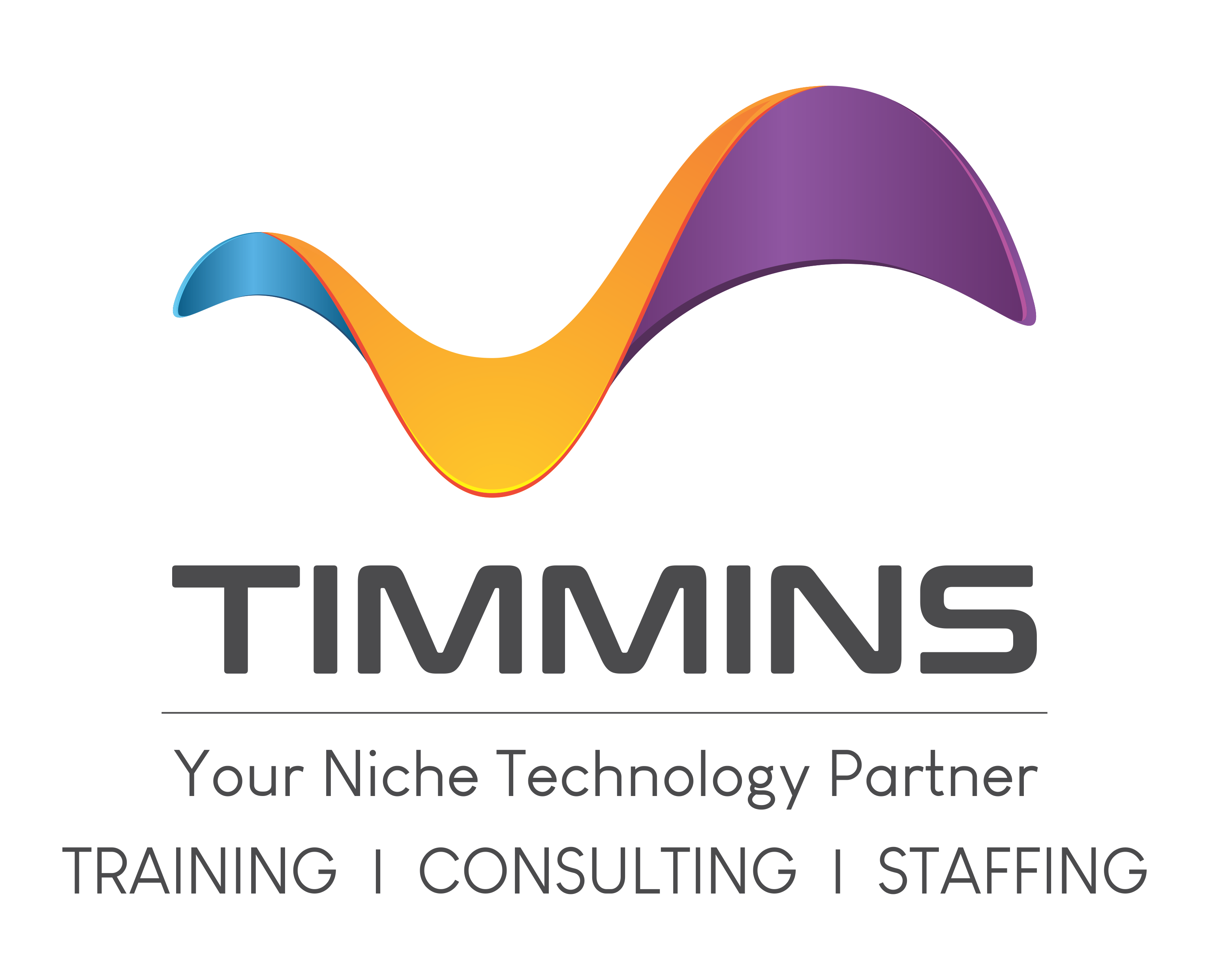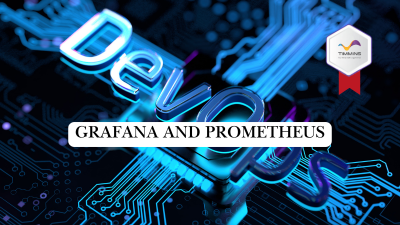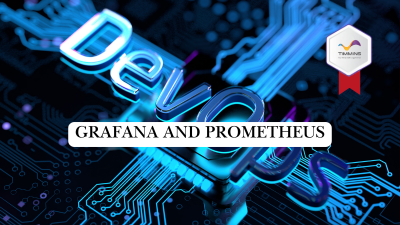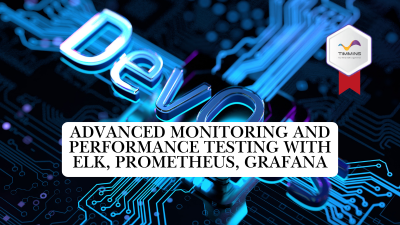
13 Courses

DevOps
Docker with Kubernetes
HRDC Reg. No: 10001547867
Course Duration: 35 Hours (5 Days)
Course Overview
This comprehensive, hands-on course introduces participants to Docker-based containerization and Kubernetes orchestration. It covers core concepts of deploying, managing, and scaling containerized applications using real-world tools and practices. Topics include Docker architecture, Kubernetes clusters, Helm, ConfigMaps, Secrets, microservices deployment, and troubleshooting multi-service environments.
Who Should Attend
-
DevOps Engineers
-
System Administrators
-
Software Developers
-
Site Reliability Engineers (SREs)
-
Cloud Engineers
-
Technical Architects
Why Choose This Course
HRDC Claimable (upon registration ID confirmation). This course equips IT professionals with practical, industry-relevant skills to containerize and orchestrate complex applications using Docker and Kubernetes. Participants will gain guided hands-on experience, making them job-ready for modern DevOps environments.
Learning Outcomes
Participants will be able to:
-
Understand Docker architecture and container technology
-
Create and manage Docker images and containers
-
Set up and manage Kubernetes clusters (single & multi-node)
-
Deploy applications using imperative and declarative styles
-
Manage Kubernetes resources: Pods, ReplicaSets, Deployments, Services, Labels
-
Perform rolling updates, rollbacks, and scaling
-
Work with Helm, ConfigMaps, Secrets, and Persistent Volumes
-
Troubleshoot and deploy complex multi-service applications
-
Understand Kubernetes networking and operators
Prerequisites
-
Basic Linux command-line knowledge
-
Familiarity with the Linux environment
-
Basic programming experience in any language
Lab Setup
Each participant will receive:
-
Ubuntu VM with GUI access
-
Minimum: 8-core CPU, 16–32 GB RAM, 200+ GB SSD
-
Internet access
-
Pre-installed: Docker, kubeadm, kubectl, minikube, Helm
Teaching Methodology
-
Instructor-led sessions
-
Hands-on labs with real deployment scenarios
-
YAML-based configuration walkthroughs
-
Step-by-step troubleshooting
-
Collaborative Q&A and discussions

DevOps
DevOps (Best Practices) Hands-On Training - 5 Days
HRDC Reg. No: 10001548090
Course Duration: 35 Hours (5 Days)
Course Overview
This practical, lab-driven DevOps training provides hands-on experience with modern tools and best practices. Covering containerization, configuration management, infrastructure as code, and CI/CD, participants will learn how to automate infrastructure, streamline deployments, and implement real-world DevOps workflows using Docker, Ansible, Terraform, and Jenkins.
Who Should Attend
-
DevOps Engineers
-
System Administrators
-
Software Developers
-
Cloud Engineers
-
IT Professionals transitioning to DevOps
-
Engineering teams implementing automation
Why Choose This Course
HRDC Claimable (HRDC Registration Number required). Gain industry-relevant DevOps skills through practical labs with guidance from experienced instructors. This course prepares participants to apply automation and CI/CD practices in enterprise environments using top DevOps tools.
Learning Outcomes
Participants will learn to:
-
Work with Docker containers and manage images
-
Automate configuration using Ansible
-
Provision infrastructure using Terraform
-
Create Jenkins CI/CD pipelines
-
Build integrated workflows combining all four tools
-
Apply DevOps best practices in real-world scenarios
Prerequisites
-
Basic Linux command-line skills
-
Familiarity with Git/GitHub
-
Willingness to engage in hands-on lab exercises
Lab Setup
Each participant will receive:
-
Ubuntu 24.04 VM with GUI access and admin rights
-
Minimum 8-core CPU, 32 GB RAM, 500 GB SSD/HDD
-
Pre-installed: Docker, Terraform, VirtualBox, Jenkins
-
High-speed internet connection
Teaching Methodology
-
Instructor-led sessions
-
Hands-on labs
-
Use-case demonstrations
-
Guided projects
-
Collaborative exercises
-
Post-session troubleshooting/Q&A

DevOps
Ansible
HRDC Reg. No: 10001512655
Duration: 21 Hours (3 Days)
Course Overview
Ansible is a powerful open-source IT automation tool that simplifies configuration management, application deployment, and infrastructure automation. This course provides hands-on training in Ansible, covering its architecture, playbooks, modules, roles, and security practices to help participants master enterprise-grade automation.
Who Should Attend?
- DevOps Engineers – Automate workflows and manage deployments.
- System Administrators – Simplify IT operations and manage configurations.
- Cloud Engineers – Automate cloud infrastructure and scaling.
- Site Reliability Engineers (SREs) – Improve system reliability and reduce downtime.
Why Choose This Course?
- HRDC Claimable (HRDC Registration No: 10001512655).
- Covers core to advanced Ansible topics, including playbooks, roles, and automation best practices.
- Hands-on real-world automation exercises.
- Learn integration with Docker and cloud services.
Learning Outcomes
By the end of this course, participants will be able to:
Understand Ansible architecture and workflows.
Automate system administration tasks with playbooks.
Use Ansible inventories, modules, and variables effectively.
Secure sensitive data using Ansible Vault.
Implement roles, collections, and custom modules for enterprise automation.
Prerequisites
- Basic knowledge of IT infrastructure.
- Familiarity with Linux administration.
Lab Setup
System Requirements:
- Linux-based virtual machines or physical systems (CentOS, RHEL, Ubuntu).
- Minimum 8 GB RAM and 4 CPU cores per system.
- Internet access for package installations.
Software Requirements:
- Ansible 2.x or higher.
- Python 3.x installed on all managed nodes.
- Text editors such as Vim or Nano.
Network Configuration:
- Passwordless SSH setup between the control node and managed nodes.
Additional Tools:
- Docker for container management exercises.
Teaching Methodology
Instructor-led Training – Hands-on automation with Ansible.
Live Demonstrations – Step-by-step playbook and module development.
Hands-on Labs – Configure real-world Ansible automation solutions.
Case Studies & Troubleshooting – Solve IT automation challenges.

DevOps
Grafana and Prometheus
HRDC Reg. No: 10001512652
Duration: 21 Hours (3 Days)
Course Overview
This course provides a comprehensive introduction to Prometheus for time-series data collection and Grafana for monitoring and visualization. Participants will gain hands-on experience setting up a robust monitoring stack, configuring alerts, and building custom dashboards for real-world IT infrastructure monitoring.
Who Should Attend?
- DevOps Engineers – Monitor infrastructure & automate alerts.
- System Administrators – Gain insights into server & application performance.
- Cloud Engineers – Monitor and visualize cloud-based systems.
- Site Reliability Engineers (SREs) – Ensure system stability & reliability.
Why Choose This Course?
- HRDC Claimable (HRDC Registration No: 10001512652).
- Hands-on training with Prometheus, Grafana, and alerting tools.
- Covers real-world monitoring & automation solutions.
- Learn advanced querying with PromQL and integrate with cloud platforms.
Learning Outcomes
By the end of this course, participants will be able to:
Install, configure, and use Prometheus & Grafana for monitoring.
Set up dynamic dashboards with real-time alerts.
Collect & visualize system performance metrics.
Use PromQL for querying time-series data.
Monitor cloud & containerized applications.
Prerequisites
- Basic knowledge of IT infrastructure & Linux OS.
Lab Setup
System Requirements:
- Linux system (CentOS, Ubuntu, or similar).
- Minimum 8 GB RAM, 4 CPU cores.
Software Requirements:
- Grafana & Prometheus installed.
- Node Exporters & Push Gateway for Prometheus.
- InfluxDB for time-series data storage.
Network Configuration:
- Open ports for Prometheus & Grafana.
Programming Tools:
- Python, Go, Ruby, or Java for scripting exercises.
Teaching Methodology
Instructor-led Training – Hands-on monitoring & alerting setups.
Live Demonstrations – Real-world Grafana dashboards & Prometheus queries.
Hands-on Labs – Implement monitoring solutions from scratch.
Case Studies & Troubleshooting – Solve real-world monitoring challenges.

DevOps
Grafana and Prometheus
HRDC Reg No: 10001512653
Duration: 4 Days (28 hours)
Course Overview
This 4-day course provides an in-depth understanding of Grafana and Prometheus as a monitoring stack for IT infrastructure. Participants will gain hands-on experience with Prometheus for collecting time-series data and Grafana for visualization and analysis. By the end of this course, participants will be capable of building and managing monitoring systems, creating dynamic dashboards, setting up alerts, and integrating Prometheus with various data sources.
Who Should Attend?
- DevOps Engineers – Monitor and manage IT infrastructure
- System Administrators – Gain insights into server and application performance
- Cloud Engineers – Monitor cloud-based systems effectively
- Site Reliability Engineers (SREs) – Ensure system reliability and uptime
Why Choose This Course?
This HRDC-claimable course (HRDC Reg. No: 10001512653) offers hands-on training in real-world monitoring and alerting solutions, using Prometheus and Grafana, making it ideal for professionals looking to optimize IT infrastructure monitoring.
Learning Outcomes
By the end of this course, participants will be able to:
Install and configure Grafana and Prometheus
Use Grafana to create, customize, and manage dynamic dashboards
Configure Prometheus for monitoring applications, nodes, and services
Write PromQL queries for advanced data analysis
Set up alerting channels and create actionable alerts
Integrate Prometheus with Grafana for seamless visualization
Understand service discovery and scraping in Prometheus
Use InfluxDB as a time-series database and integrate it with Grafana
Prerequisites
- Foundational understanding of IT infrastructure
- Knowledge of Unix/Linux operating systems
Lab Setup
- System Requirements:
- Linux-based systems (CentOS, Ubuntu, or similar)
- Minimum 8 GB RAM & 4 CPU cores per machine
- Software Requirements:
- Grafana & Prometheus installed
- Node Exporters & Alert Manager configured for Prometheus
- InfluxDB for time-series data
- Network Configuration:
- Open ports for Prometheus, Grafana, and related services
- SSH access for monitoring nodes
- Programming Tools:
- Python or Go for client libraries
Teaching Methodology
Interactive Lectures – Clear explanation of core concepts and features
Hands-on Labs – Guided exercises for practical implementation
Case Studies – Real-world scenarios to demonstrate monitoring solutions
Group Discussions – Collaborative troubleshooting and brainstorming
Assessments – Periodic quizzes and hands-on tasks to validate learning outcomes

DevOps
Advanced Monitoring and Performance Testing with ELK, Prometheus, Grafana
HRDC Reg. No: 10001426206
Duration: 5 Days (35 Hours)
Course Overview
This advanced course equips participants with expertise in implementing and managing monitoring and performance testing systems using the ELK Stack, Prometheus, and Grafana, deployed on Azure. Covering installation, configuration, and hands-on labs for both Linux and Windows environments, the course emphasizes creating custom dashboards and conducting comprehensive performance tests to ensure application reliability and scalability.
Who Should Attend?
Targeted Industries:
- IT and Software Development
- Cloud and Infrastructure Management
- Enterprise Monitoring
Audience by Designation:
- DevOps Engineers
- System Administrators
- Performance Testers
- IT Professionals Seeking Advanced Monitoring Skills
Learning Outcomes
Participants will:
- Set up the ELK Stack (Elasticsearch, Logstash, Kibana, Beats) on Azure.
- Master Elasticsearch queries, APIs, and cluster management.
- Use Prometheus and Grafana for advanced metrics visualization and dashboard creation.
- Conduct stress, load, and endurance testing of web applications.
- Analyze performance metrics and optimize application performance.
Prerequisites
- Basic programming knowledge.
- Familiarity with web applications and networking concepts.
- Basic understanding of command-line functions and cloud computing.
Lab Setup
- Azure Virtual Machines (Linux and Windows Environments)
- Installed Tools: ELK Stack, Prometheus, Grafana
- Kubernetes Cluster for Prometheus and Grafana Deployment
Teaching Methodology
- Interactive Lectures and Practical Demonstrations
- Hands-On Labs and Real-World Exercises
- Case Studies and Troubleshooting Sessions
- Group Discussions and Performance Scenarios

DevOps
Comprehensive DevOps, Cloud Management
HRDC Reg. No: 10001425976
Duration: 28 hours (4 days)
Course Overview
This intensive four-day course provides a solid foundation in Docker, Kubernetes, and Azure. Participants will gain expertise in containerization, orchestration, and cloud management with hands-on exercises. The course covers:
- Docker architecture and container management.
- Kubernetes fundamentals and advanced orchestration.
- Azure cloud services and virtual machine management.
Who Should Attend
This course is ideal for:
- DevOps Engineers
- Cloud Architects
- Software Developers
- IT Managers
- System Administrators
Learning Outcomes
Upon completion, participants will be able to:
- Understand the architecture of Docker, Kubernetes, and Azure.
- Install and manage Docker images and containers.
- Deploy applications using Kubernetes and Helm.
- Manage Azure resources including VMs and load balancers.
- Perform scaling, rolling updates, and rollbacks.
- Apply Azure CLI and PowerShell for cloud management.
Prerequisites
- Basic programming knowledge
- Familiarity with web applications
- Basic command line understanding
- Networking fundamentals
- Cloud computing basics
Lab Setup
- Pre-installed Docker and Kubernetes environments
- Azure account with administrative privileges
- Command-line tools: Azure CLI, PowerShell
Teaching Methodology
- Instructor-led sessions
- Hands-on lab exercises
- Interactive Q&A
- Case studies

DevOps
Containerization with Docker and Kubernetes
HRDC Reg. No: 10001465552
Duration: 14 hours (2 days)
Course Overview
This comprehensive course covers Docker and Kubernetes, focusing on containerization and orchestration. It provides practical, hands-on experience to create, manage, and scale containerized applications effectively. Key topics include:
- Container fundamentals and Docker architecture.
- Managing containers, images, and Docker Compose.
- Kubernetes basics, including pods, services, and scaling.
- Advanced Kubernetes features like Ingress, Persistent Volumes, and Helm.
Who Should Attend
This course is ideal for:
- DevOps Engineers
- System Administrators
- Cloud Developers
- Software Developers
- IT Professionals
Learning Outcomes
Upon completing this course, participants will be able to:
- Understand containerization concepts and benefits.
- Deploy and manage containers using Docker.
- Use Kubernetes for application orchestration.
- Implement networking, storage, and scaling in Kubernetes.
- Automate Kubernetes deployments using Helm.
Prerequisites
- Basic knowledge of Linux commands and file systems.
- Familiarity with cloud computing concepts (recommended but not mandatory).
Lab Setup
- Laptop with at least 8 GB RAM and 20 GB free disk space.
- Docker and Minikube/Kubernetes cluster pre-installed.
- Internet access for image pulling.
- Virtualization enabled.
- Text Editor (VS Code, Sublime Text, Nano).
Teaching Methodology
- Lectures with hands-on labs.
- Interactive Q&A sessions.
- Group exercises and real-world case studies.

DevOps
Continuous Integration and Continuous Deployment (CI CD)
HRDC Reg. No: 10001465553
Duration: 21 hours (3 days)
Course Overview
This course provides a comprehensive understanding of Continuous Integration (CI) and Continuous Deployment (CD), essential components of modern DevOps workflows. Participants will learn to streamline the software development lifecycle, automate testing, and ensure faster, more reliable releases. Key topics include:
- CI/CD tools and best practices.
- Automating builds, tests, and deployments.
- Cloud infrastructure integration.
- Security and monitoring in CI/CD pipelines.
Who Should Attend
This course is ideal for:
- Software Engineers
- DevOps Engineers
- QA Engineers
- IT Operations Professionals
- Project Managers in Software Development
Learning Outcomes
Upon completing this course, participants will be able to:
- Understand CI/CD fundamentals and their role in DevOps.
- Configure and manage CI/CD pipelines with industry-standard tools.
- Automate testing, building, and deployment processes.
- Implement version control strategies with Git.
- Integrate CI/CD pipelines with cloud infrastructure.
- Enhance software quality and release speed.
Prerequisites
- Basic understanding of software development processes.
- Familiarity with version control systems (e.g., Git).
- Prior experience with scripting or programming languages.
Lab Setup
- Access to cloud-based CI/CD tools (Jenkins, GitLab CI, CircleCI, or Travis CI).
- A version control system (GitHub or GitLab) with sample projects.
- Virtualized environments or Docker for automated tests.
- Cloud platforms (AWS, Azure, GCP) for deployment.
Teaching Methodology
- Lectures & Presentations: Conceptual understanding.
- Hands-on Labs: Practical application with guided exercises.
- Case Studies: Real-world CI/CD implementations.
- Group Activities: Collaboration and problem-solving.

DevOps
Grafana and Prometheus Level 1
HRDC Reg. No: 10001260899
Duration: 14 hours (2 days)
Course Overview
This course provides a comprehensive introduction to Prometheus and Grafana, commonly used in DevOps for monitoring and visualizing time-series data.
Participants will learn how to:
- Collect metrics using Prometheus.
- Visualize data and create dashboards with Grafana.
- Set up alerts for critical metrics and system performance.
Who Should Attend
Ideal for:
- DevOps Engineers
- System Administrators
- Cloud Developers
- IT Operations Professionals
Learning Outcomes
By the end of this course, participants will be able to:
- Install and configure Grafana and Prometheus.
- Set up data sources and dashboards for effective data visualization.
- Work with time-series databases like InfluxDB.
- Write and use PromQL queries for data analysis.
- Implement alerting mechanisms with Prometheus Alert Manager.
Prerequisites
- Basic understanding of IT infrastructure.
- Knowledge of Unix/Linux operating systems.
Lab Setup
- Grafana and Prometheus pre-installed.
- InfluxDB and Node Exporter setup.
- Cloud-based or local VM environment with root access.
Teaching Methodology
- Instructor-led lectures for foundational concepts.
- Hands-on labs for practical experience.
- Group activities and real-world use cases.
Course Outline (Per Session)

DevOps
Infrastructure as Code (IaC) with Terraform and Ansible
HRDC Reg. No: 10001468115
Duration: 21 hours (3 days)
Course Overview
This 3-day course introduces participants to Infrastructure as Code (IaC) using Terraform and Ansible, focusing on infrastructure automation and cloud provisioning. Key topics include:
- Terraform for infrastructure management using declarative code.
- Ansible for server configuration automation.
- Best practices in infrastructure automation.
Who Should Attend
This course is ideal for:
- DevOps Engineers
- System Administrators
- Cloud Engineers
- IT Operations Professionals
- Anyone interested in Infrastructure Automation
Learning Outcomes
By the end of the course, participants will be able to:
- Understand IaC principles and benefits.
- Deploy and manage infrastructure using Terraform.
- Automate server configuration with Ansible.
- Integrate Terraform and Ansible for complete automation.
- Apply best practices in version control and automation.
- Work with AWS, Azure, or GCP for cloud deployments.
Prerequisites
- Basic understanding of cloud services (AWS, Azure, GCP).
- Familiarity with Linux commands and system administration.
- Basic knowledge of virtualization and networking.
- Experience with YAML and JSON (optional but helpful).
Lab Setup Requirements
- Hardware: Computer with 8 GB RAM and virtualization enabled.
- Software:
- Terraform (latest version)
- Ansible (latest version)
- AWS/Azure/GCP account
- Git and a text editor (VSCode, Sublime Text)
Teaching Methodology
- Instructor-led theory sessions.
- Hands-on labs for practical application.
- Case studies for real-world relevance.
- Interactive Q&A and group discussions.

DevOps
Introduction to DevOps
HRDC Reg. No: 10001465555
Duration: 14 hours (2 days)
Course Overview
This Introduction to DevOps course offers foundational knowledge on DevOps principles, tools, and practices aimed at streamlining software development and IT operations. Participants will learn automation, CI/CD pipelines, collaboration strategies, and monitoring tools essential for modern DevOps workflows.
Who Should Attend
Ideal for:
- Developers
- IT Operations Professionals
- System Administrators
- Quality Assurance Engineers
- Anyone interested in learning DevOps methodology
Learning Outcomes
By the end of this course, participants will be able to:
- Understand DevOps principles and benefits in software development.
- Identify roles and responsibilities within a DevOps team.
- Implement basic CI/CD pipelines using industry tools.
- Automate testing, infrastructure management, and deployments.
- Integrate monitoring tools for continuous feedback and improvement.
- Foster collaboration between development and operations teams.
Prerequisites
- Basic understanding of software development processes.
- Familiarity with version control systems (e.g., Git).
Lab Setup
- Tools: Git, Jenkins, Docker, Ansible, Nagios, Prometheus.
- Environment: Linux-based VM or cloud environment with CI/CD tools pre-installed.
Teaching Methodology
- Lectures: Conceptual sessions on core topics.
- Hands-on Labs: Practical application using DevOps tools.
- Case Studies: Real-world DevOps success stories.
- Group Discussions: Collaborative learning and problem-solving.

DevOps
Monitoring and Logging in DevOps
HRDC Reg. No: 10001465556
Duration: 14 hours (2 days)
Course Overview
This Monitoring and Logging in DevOps course focuses on the essential tools and strategies for monitoring system performance and managing logs in modern DevOps environments. The course offers hands-on experience with tools like Prometheus, Grafana, and the ELK Stack (Elasticsearch, Logstash, Kibana), helping participants ensure continuous visibility into infrastructure and application health.
Who Should Attend
Ideal for:
- DevOps Engineers
- System Administrators
- Software Developers managing infrastructure
- IT Operations Professionals
Learning Outcomes
By the end of this course, participants will be able to:
- Understand the role of monitoring and logging in DevOps.
- Set up and configure Prometheus and Grafana for monitoring.
- Implement ELK Stack for centralized log management.
- Use monitoring and logging for troubleshooting system performance.
- Develop alerting and notification systems.
- Apply best practices for efficient monitoring and logging strategies.
Prerequisites
- Basic knowledge of DevOps practices and CI/CD pipelines.
- Familiarity with Linux/Unix command-line interfaces.
- Basic understanding of cloud infrastructure and containerization (optional).
Lab Setup
- Virtual machines or cloud-based environments.
- Prometheus, Grafana, and ELK Stack pre-installed.
- Sample applications for monitoring and logging.
- Pre-configured scripts for hands-on exercises.
Teaching Methodology
- Lectures: Interactive theory sessions.
- Hands-on Labs: Practical, tool-based exercises.
- Case Studies: Real-world DevOps scenarios.
- Group Discussions: Collaborative problem-solving.
